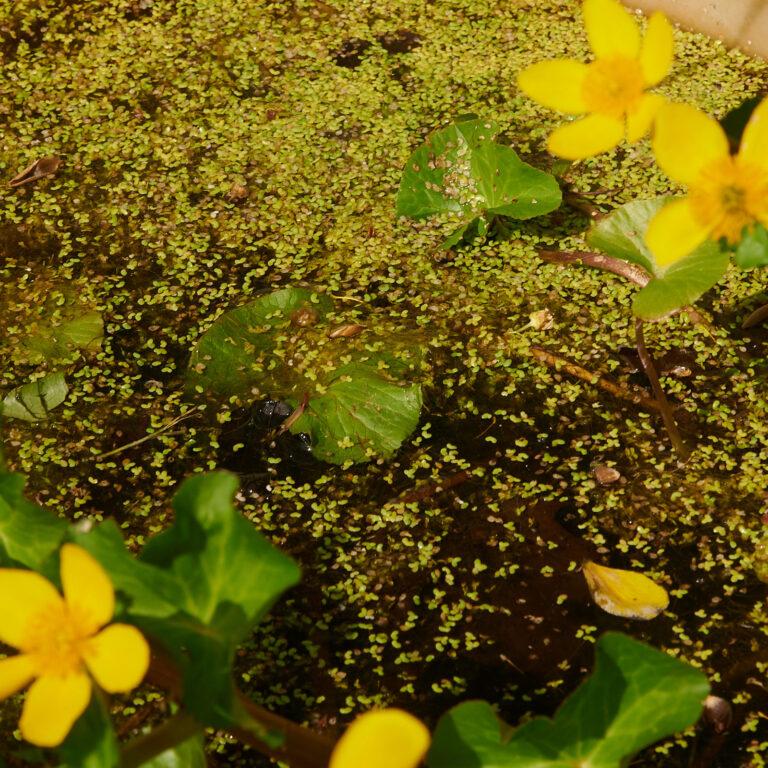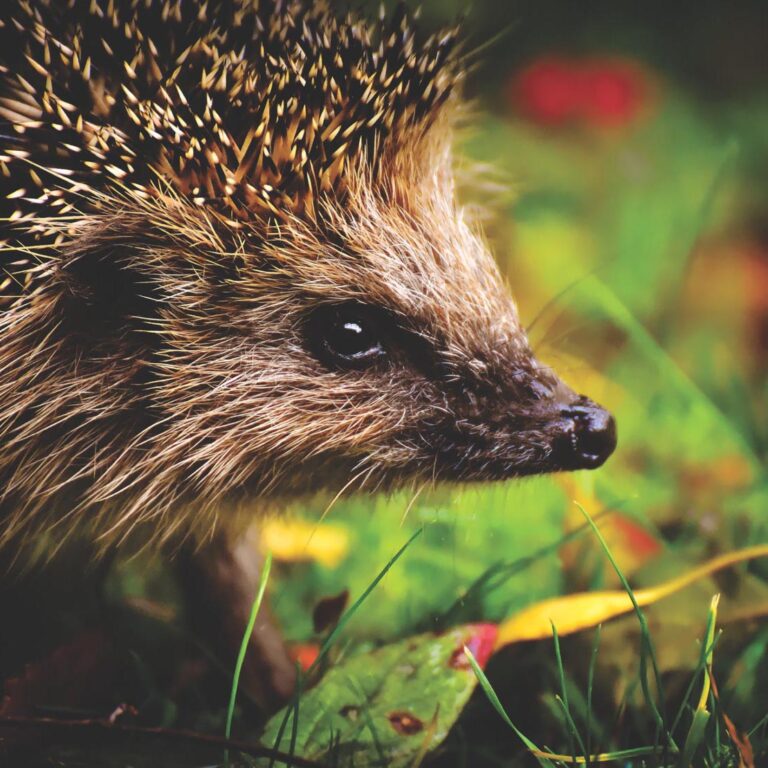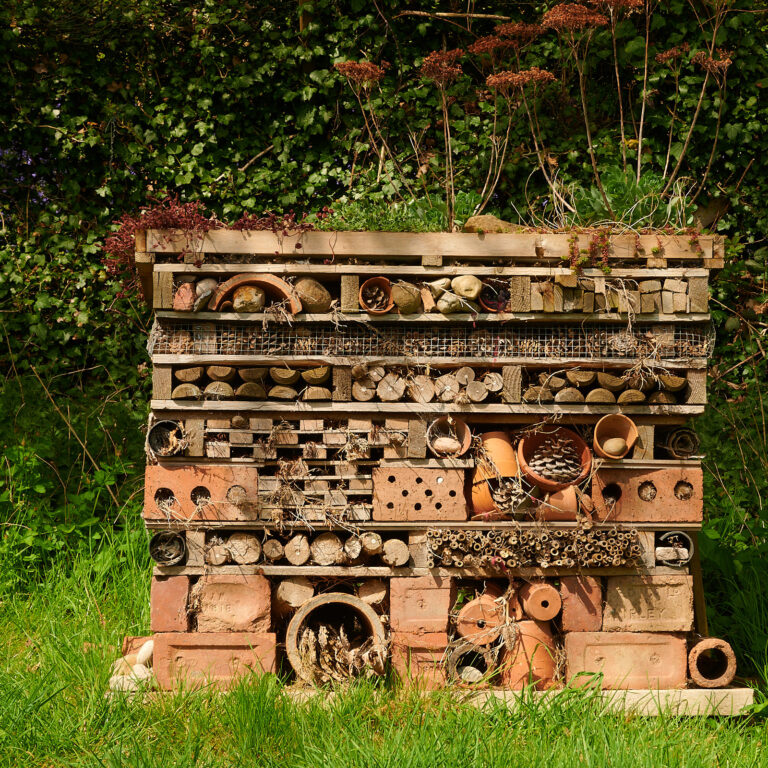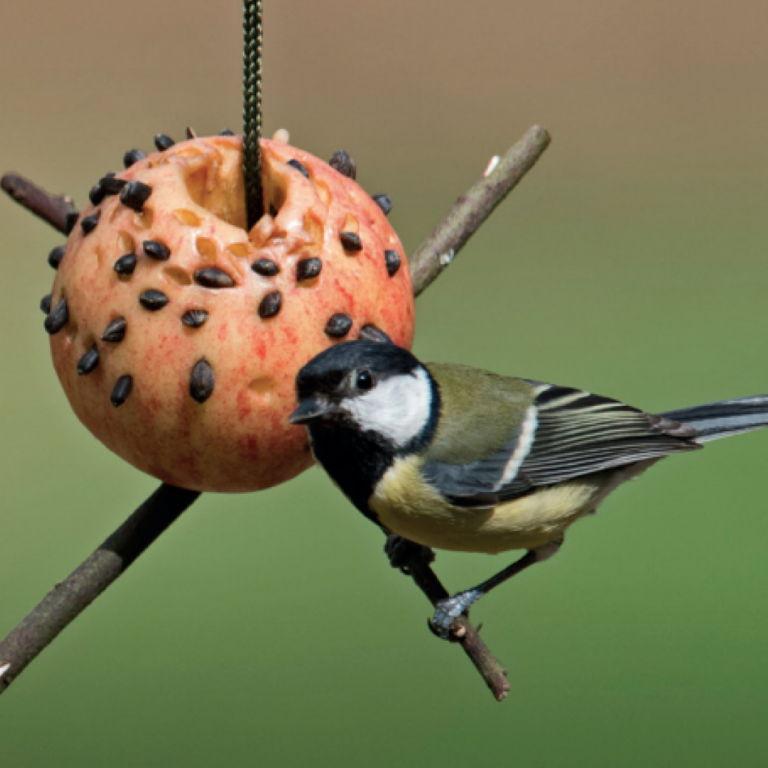Supporting Wildlife
Help to support wildlife by following some simple steps
Eliminate the use of slug pellets, slugs are eaten by frogs, toads, hedgehogs, centipedes, ground beetles, slow worms and fireflies. Metaldehyde slug pellets are to be banned across Great Britain in 2021, because of an “unacceptable” risk to birds and mammals.
Check out the RSPB link on Non Toxic Slug Control and Nematodes


Build a Pond
Hedgehogs
There are plenty of creatures that will be keen to move in. The Common Frog, The Smooth Newt and The Blue Tail Damselfly.
Hedgehogs must weigh around 600 grams before going into hibernation to see it through the long sleep. Smaller Hedgehogs will still try and hibernate, but if the body fat is too low, it will not wake up again.
Hedgehogs waking from a long hibernation will be desperate for food. Why not make a cat friendly feeding station. Hedgehog feeding station, visit Hedgehog Street.


Bug Hotel
Feed Birds
Create a multi-storey bug hotel that’s full of all sorts of natural materials, providing hidey-holes for creatures galore.
Safe hideaways can be hard for wildlife to find in some gardens, and what better use for all your garden waste and odds and ends?
You can build your bug hotel at any time of year, but you may find you have most natural materials such as straw, dry grass and hollow plant stems in autumn.
Feed birds through the winter and supply nesting boxes.
Plant late, mid-season and early blooming nectar rich flowers to attract pollinators and beneficial insects all year round.
Wildlife enthusiasts can get involved with the organisations listed below:
Big Garden Birdwatch It’s so easy to make a difference.
The BIG Hedgehog Map – Hedgehog Street are wanting to make sure the hedgehog, the UK’s only spiny mammal, remains a common and familiar part of British life, that’s where you come in.
The Great British Bee Count – How your sightings have helped bees.
Earthworm Watch – conduct your own earthworm survey to help map where they are, better understand the vital benefits they bring, and ultimately, help protect them.
RSPB Swift Survey – swifts are in trouble and need help by providing nesting sites.
Big Butterfly Count – 14 July to 6 August
Froglife is a national wildlife charity committed to the conservation of amphibians, reptiles, frogs, toads, newts, snakes and lizards, saving the habitats they depend on.
Buglife – ‘If we and the rest of the back-boned animals were to disappear overnight, the rest of the world would get on pretty well. But if the invertebrates were to disappear, the world’s ecosystems would collapse.’ Sir David Attenborough.
RSPB -Together we can give nature the home it needs.
Hedgehog Wildlife Trust – Hedgehogs usually hibernate between November through to mid March, but they can sometimes be seen out and about during this period changing nesting sites. It is unusual to see a hedgehog staggering around during winter or in daylight, so if you do see one and it looks unwell, it might need a helping hand.
British Hedgehog Preservation Society – Founded in 1982 the British Hedgehog Preservation Society offers help and advice to those with sick, injured or orphaned hedgehogs and maintains a list of rehabilitators in the UK.
Bumble bee Conservation Trust – If you happen to discover a hibernating bumblebee while digging in the garden, try to avoid disturbing her too much and loosely re-cover her to allow her to hit the snooze button until spring.
Butterfly Conservation – Butterflies and moths are sensitive indicators of the health of our environment.
